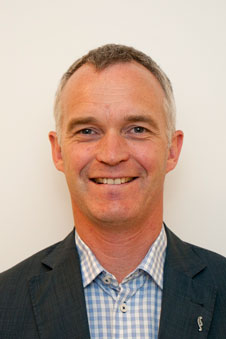 Thursday 12 January 2017 8:49am
Thursday 12 January 2017 8:49am
Professor Richard Gearry
Christchurch researchers and their international collaborators have identified genetic markers that could predict those who will suffer most from Crohn's disease.
The results of the study were recently published in Nature Genetics.
The study also found genetic variations that make a person susceptible to Crohn's disease are likely to be different to those affecting that person's prognosis.
Professor Richard Gearry of the University of Otago, Christchurch, is part of the global consortia of gastroenterologists and genetics experts who did the study.
He hopes the results will in future help patients who suffer the most from the disease, including requiring many surgeries and powerful medications. New Zealand has high rates of the disease.
“We may be able to use these and other markers to determine whether someone will have a good or a bad prognosis at the time they are diagnosed. We could then tailor the right treatment for the right patient, not over-treating patients with a good prognosis and not under-treating those with a poor prognosis.”
Gearry says there have been rapid advances in identifying genes that could predispose people to complex diseases such as Crohn's disease. Identifying 'susceptibility genes' gives clues as to why people may get a disease but not always how a disease may behave once a patient is diagnosed (prognosis).
Gearry and his team contributed DNA samples and detailed prognostic data from several hundred Cantabrians with Crohn's disease to the study published in Nature Genetics. DNA from almost 6,000 patient internationally made up the study. Another University of Otago scientist, Dr Rebecca Roberts, is also an author on the paper.
For more information, contact:
Kim Thomas
Communications Manager
University of Otago, Christchurch
Mob: 027 222 6016
Email: kim.thomas@otago.ac.nz
A list of Otago experts available for media comment is available elsewhere on this website.
Electronic addresses (including email accounts, instant messaging services, or telephone accounts) published on this page are for the sole purpose of contact with the individuals concerned, in their capacity as officers, employees or students of the University of Otago, or their respective organisation. Publication of any such electronic address is not to be taken as consent to receive unsolicited commercial electronic messages by the address holder.
